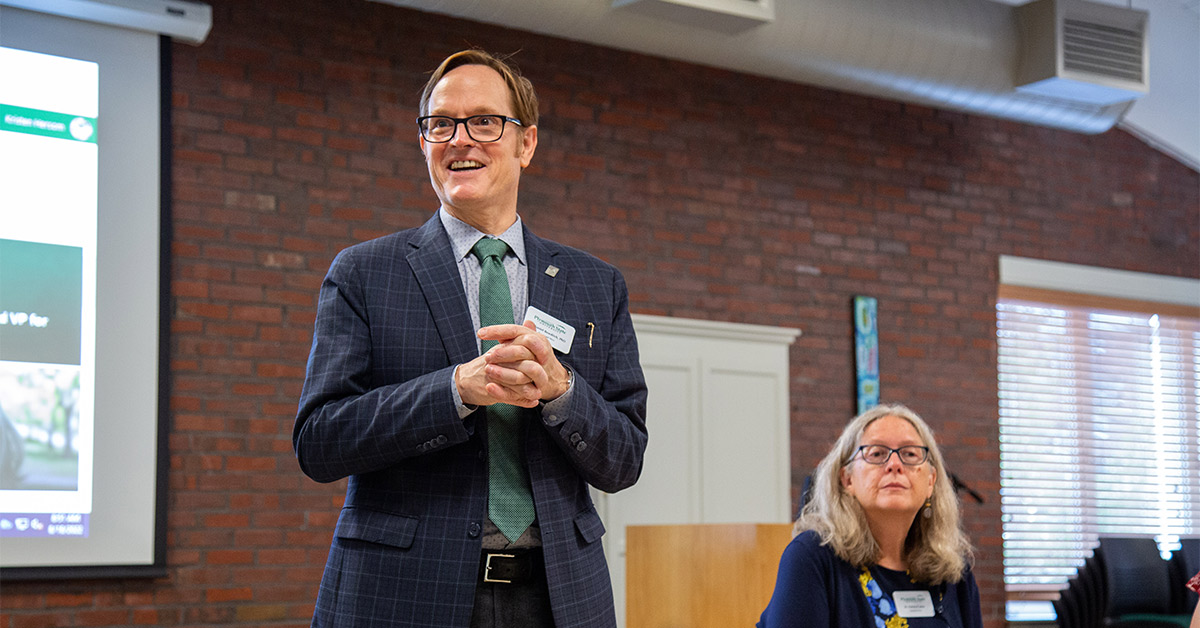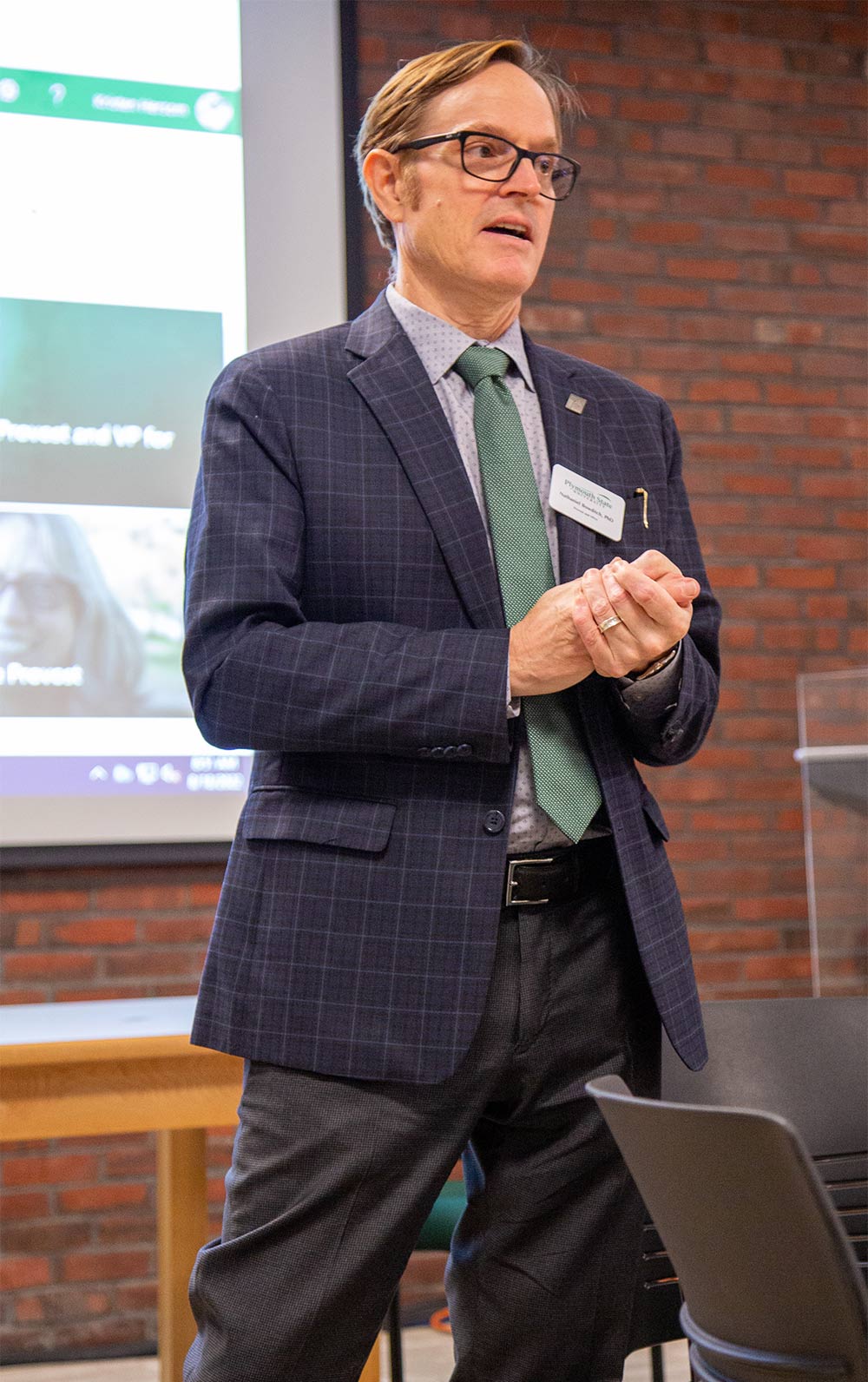
Bowditch holds three degrees in philosophy, including a bachelor’s from the University of California at Berkeley and a master’s and PhD from Johns Hopkins University. He most recently served as dean of the LIU Post College of Liberal Arts and Sciences and professor of philosophy, and previously was dean of the School of Humanities and Social Science at the American University in Cairo, where he received the Provost’s Service and Excellence in Undergraduate Teaching awards.
A Boston native, he’s thrilled to return to New England. The self-described “family man, 100 percent” is accompanied by his wife, Eden Unger Bowditch, an author, journalist, academic, and Nate’s partner in music and high-performance sailing, and Spinoza, their cockapoo. The pair has three grown children.
The semester had just gotten underway when Plymouth Magazine and Bowditch found time to consider PSU’s potential, his priorities, and philosophy’s enduring contributions.
Nate Bowditch: I’m a philosophy professor, and the Socratic question of ‘What kind of person should I be?’ comes to mind. It’s not something you can answer in elementary school or in middle school, and you might start thinking about it in high school. One of the things college is for is having the freedom to be challenged and pushed and encouraged to answer those kinds of questions. But another part of it is to figure out, what am I going to do with myself and how am I going to fit into the world?
Plymouth Magazine: What should college students expect from higher education?
Nate Bowditch: We want to equip students for their first job, and their second, third, and fourth ones as well, because statistics show that they’ll have multiple careers. If they want to be a nurse or anything else, we’ll train them to thrive at that dream, but we also want them ready to be successful and productive for the rest of their lives.
Plymouth Magazine: What attracted you to PSU?
Nate Bowditch: The Cluster model is the first real, transformative idea in American higher education in a long time. This vision of an education equips students with multiple tools, facilities, and capacities to get out there and solve the big problems of the moment and of the future. Problems that we haven’t even seen yet. I’m also deeply devoted to and believe in public education, having been a student of public education myself, and I want to give back. Plymouth State has always been committed to that; it’s essential to our mission. Being at a place that is proudly public and committed to the common good, to the state of New Hampshire and our citizens, and to a real revolutionary approach to higher education—that’s like the perfect storm for me.
Plymouth Magazine: How does the Cluster model fit into the bigger picture?
Nate Bowditch: Higher education and its history, and our systems and our practices have been among our greatest achievements as a nation. It’s one of the reasons we have been and remain a superpower in the world, and for good reason, because it’s been a tremendous force of positive good in this country and around the world. Cluster learning connects to American history, which is something that I deeply value, and it’s doing it in a way that’s preparing us for a newer and brighter future that I just haven’t seen anywhere else.

Nate Bowditch: Everyone knows that what we’re doing here is important. The belief and commitment of everyone in this community to the value of what we’re doing is the biggest thing that I’ve seen. It makes me excited every day to come in to try and make a difference.
Plymouth Magazine: Your position has so many moving parts. How do you prioritize?
Nate Bowditch: At the end of the day, it’s very simple—it’s pure service. I am here to make sure that the faculty, staff, and students have what they need to contribute to and foster a fantastic Cluster educational experience. That’s my job, and there’s lots of work to do, and I find it exciting to see the vision through because a lot of that work is really creative.
Plymouth Magazine: What should readers know about you?
Nate Bowditch: I believe in this place and care about its mission. So many people have said to me, we want you to succeed, I’ve heard it over and over, and that’s mutual because I want PSU to succeed. I feel so lucky to have this opportunity to work with this amazing community, and to be part of, as President Birx says, ‘this great experiment.’